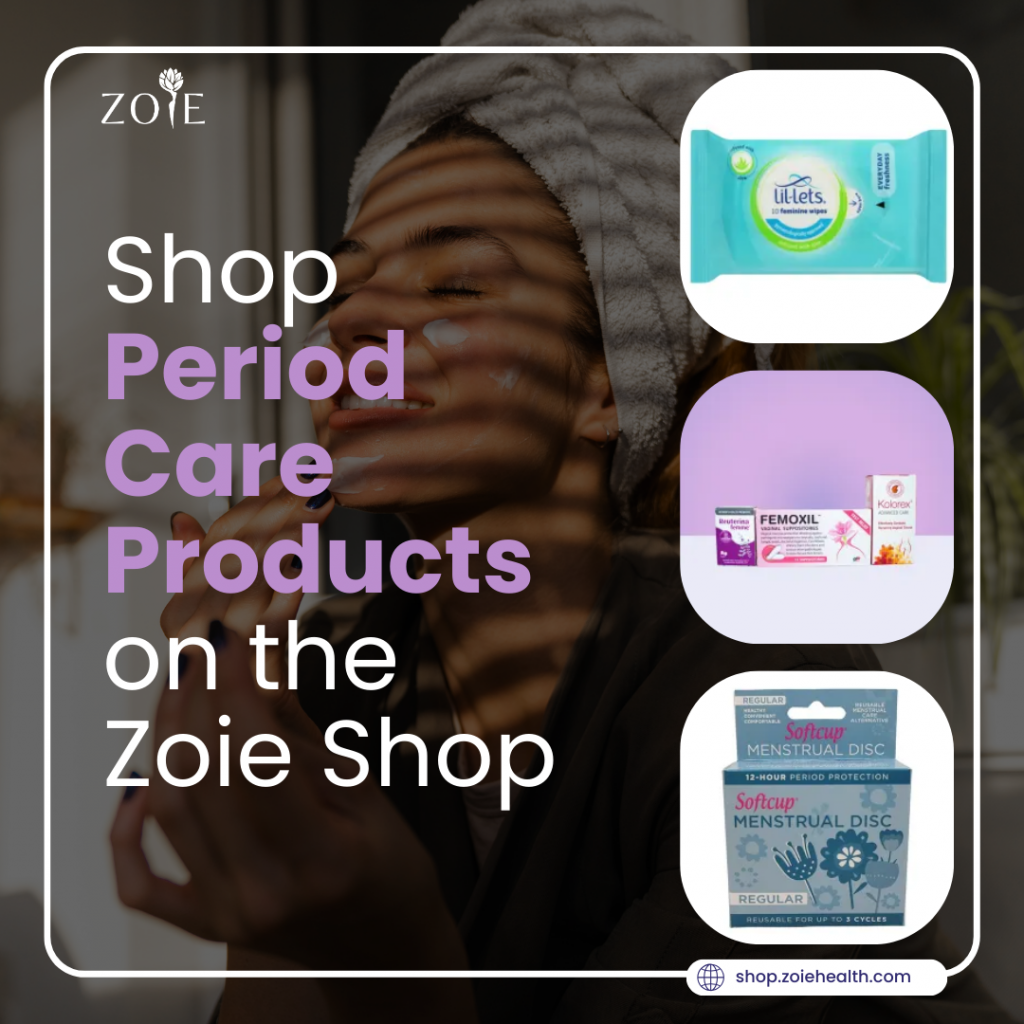Premenstrual Syndrome (PMS) is more than just a physical experience; it’s a complex interplay of hormonal fluctuations that significantly impacts mental health. Our aim at Zoie Health is to empower women with knowledge and practical strategies to manage PMS effectively, ensuring both physical and emotional wellbeing.

The insights shared in this blog post are gleaned from our #realtalk series, which we held on the Panda App, featuring Karabo Mokoena, a mental health advocate, Dr. Londiwe Kunene, an obstetrics and gynaecology specialist, and Zoie Community Coordinator Kiara Bouw. This discussion provided a platform for an in-depth exploration of menstrual health, delving into the complexities of PMS and its impact on mental wellbeing. The guests collectively offered a comprehensive understanding of the challenges women face and the strategies to manage them effectively.
The Importance of Cycle Awareness
Understanding your menstrual cycle is the first step toward managing PMS. By tracking your cycle, you can anticipate bodily reactions and prepare accordingly. Keeping a detailed period diary, noting the start and end dates, symptoms, and intensity, can be enlightening. This practice is essential for identifying patterns and aiding healthcare providers in diagnosing and treating conditions like endometriosis, a condition where tissue similar to the uterine lining grows outside the uterus, often causing severe pain and fertility issues.

Lifestyle Adjustments for Better Mental Health
Adopting a healthy lifestyle is pivotal. Despite the lethargy associated with PMS, maintaining a balanced diet and engaging in physical activity can significantly ease symptoms. Limiting caffeine and sugary foods, which can exacerbate mood swings and sleep disruptions, is recommended. Simple activities like walking or spending time outdoors can boost mood and aid in managing cramps and heavy bleeding.
Empowerment Through Education
A striking point raised in our discussions is the need for better education about menstruation, particularly from healthcare providers. Women need comprehensive knowledge to manage their health effectively, understanding what is normal to identify abnormalities. The typical menstrual cycle varies from 23 to 35 days, and any deviation should prompt medical consultation. You can book a virtual consultation with Zoie Healthcare Providers for quick and quality healthcare advice.
Holistic Treatment Approaches
At Zoie Health, we advocate for a holistic approach to menstrual health. This includes understanding the role of hormones like oestrogen and progesterone in affecting mood and energy levels. Serotonin, the “happy hormone,” also fluctuates with the menstrual cycle, influencing mood and overall mental health. Therefore, it’s crucial to find stress-relieving activities like yoga, meditation, or journaling to enhance self-care during this phase.

Embracing Technological Aids
The use of apps like “Flo” for tracking menstrual cycles has been highlighted as incredibly useful. These digital tools offer an easy way to understand and manage your cycle better.
The Role of Medication and Alternative Remedies
While medication is a necessary aspect of managing menstrual pain, especially in conditions like endometriosis, there are also alternative remedies available. CBD-infused products, known for their pain-relieving properties, offer a non-dependent approach to managing discomfort. At Zoie, we provide care packages that include items like electric bean bags, chocolates, and CBD shots, fostering self-care and comfort during menstruation.

Conclusion
At Zoie Health, we understand that every woman’s experience with menstruation is unique. Our goal is to provide you with the knowledge, tools, and resources to manage your menstrual health effectively. By tracking your cycle, making lifestyle adjustments, and using the right combination of treatments, you can navigate PMS and menstrual health challenges with greater ease and confidence. Remember, your menstrual health is an integral part of your overall well being, and we are here to support you every step of the way.
Sources: Karabo Mokoena, Dr Londiwe Khumalo, Mayo Clinic









